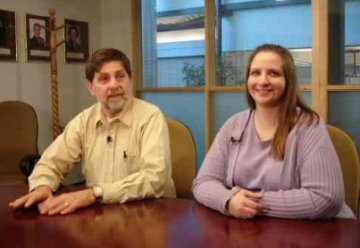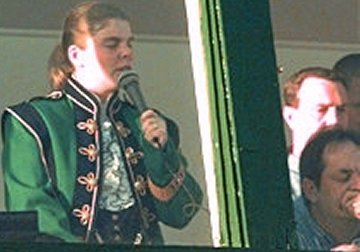 Dan and Debbie Weisman Lee v Weisman (1992) |
 Marian Ward praying before Santa Fe High FB game Santa Fe School District v Doe (2000) |
| 1. Justice Kennedy is
the swing vote in these cases today. 2. What does he say about prayer in the school context? It is beyond dispute that, at a minimum, the Constitution guarantees that government may not coerce anyone to support or participate in religion or its exercise.... The undeniable fact is that the school district's
supervision and control of a high school graduation ceremony places
public pressure, as well as peer pressure, on attending students to
stand as a group or, at least, maintain respectful silence during the
invocation and benediction. This pressure, though subtle and indirect,
can be as real as any overt compulsion.... The Government's argument gives insufficient
recognition to the
real conflict of conscience faced by the young student. The essence of
the Government's position is that, with regard to a civic, social
occasion of this importance, it is the objector, not the majority, who
must take unilateral and private action to avoid compromising religious
scruples, hereby electing to miss the graduation exercise. This turns
conventional First Amendment analysis on its head. It is a tenet of the
First Amendment that the State cannot require one of its citizens to
forfeit his or her rights and benefits as the price of resisting
conformance to state-sponsored religious practice. To say that a
student must remain apart from the ceremony at the opening invocation
and closing benediction is to risk compelling conformity in an
environment analogous to the classroom setting, where we have said the
risk of compulsion is especially high.... --Lee v Weisman (505 U.S. 577, 1992) (KENNEDY, J) |
Justice Kennedy on the Rights of Student Religious Organizations
Exploring Constitutional Law